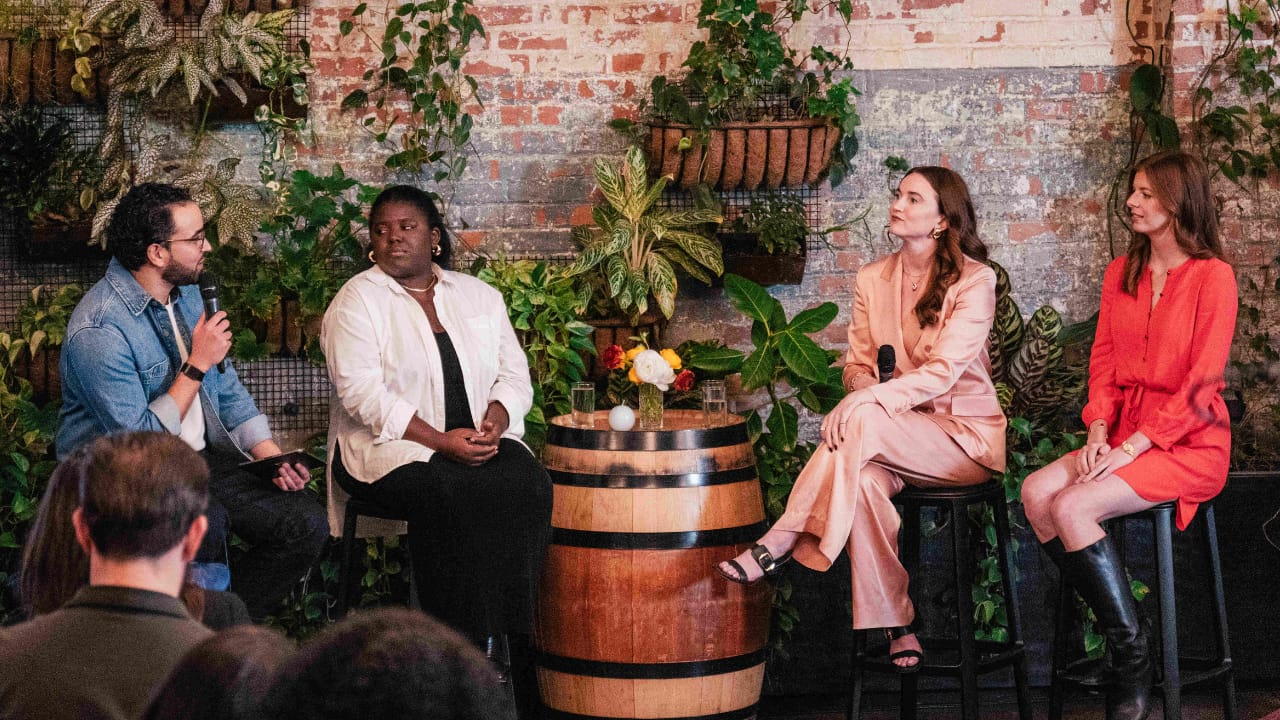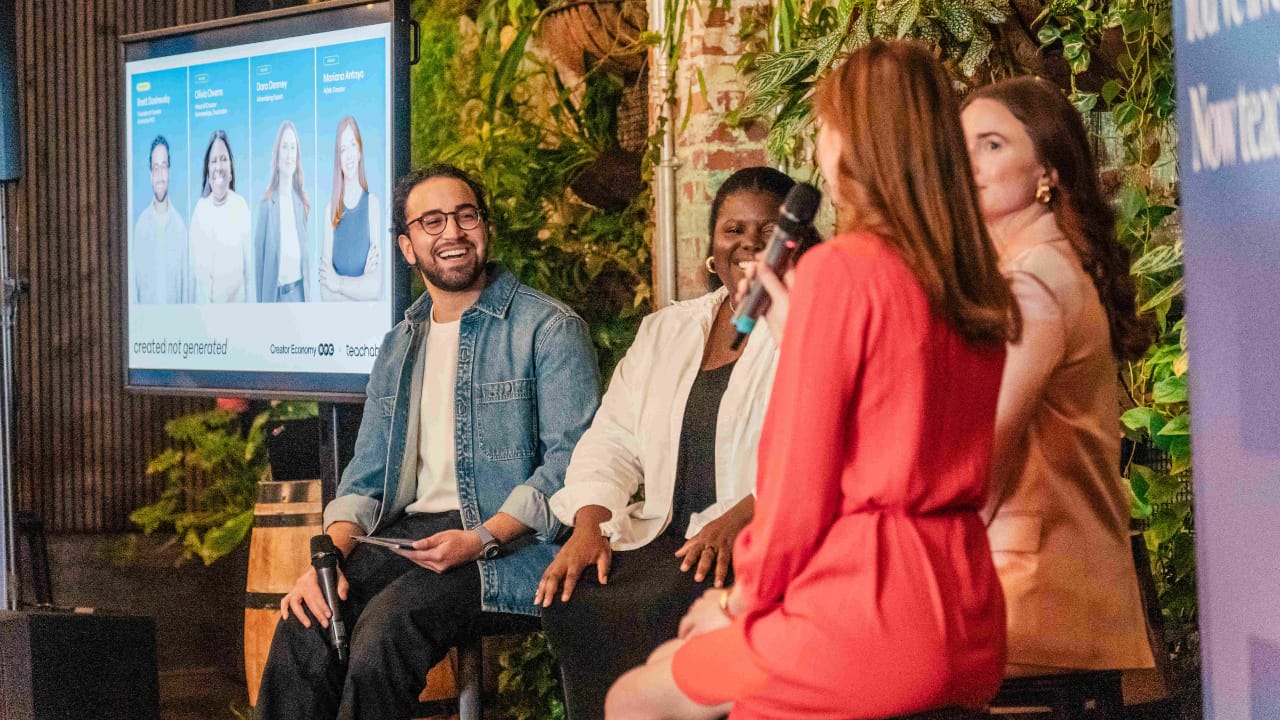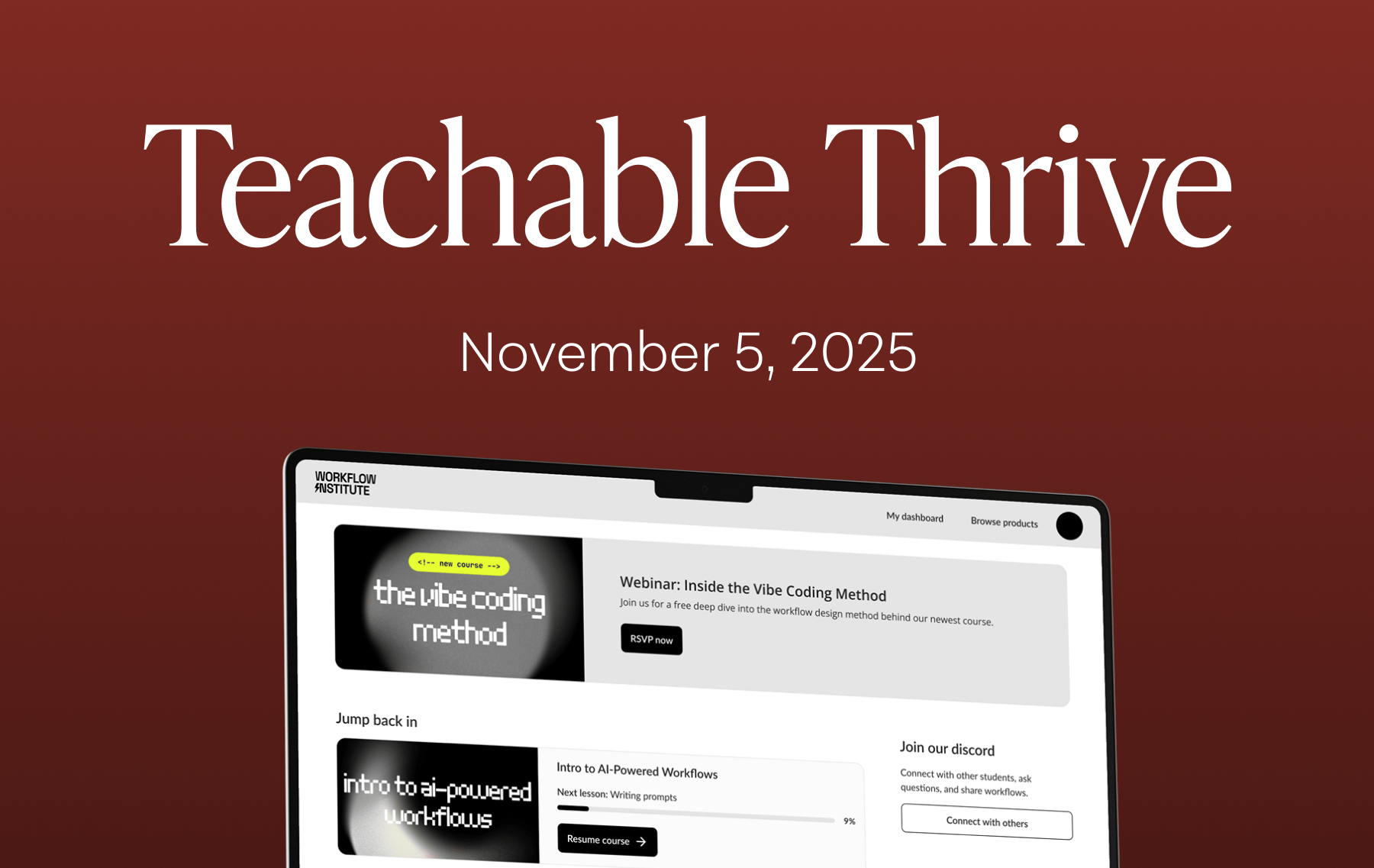- Creator Economy NYC
- Posts
- You're in a situationship with your fans
You're in a situationship with your fans


Hey! Welcome to the (98th!) Creator Economy NYC newsletter, your weekly dose of insights and strategies to help you build, monetize, and scale as a creator.
Last week, we hosted our first panel event since July, and it felt really good to be back in action. Great to see so many of you there! (And from the looks of it, we might squeeze one more in before the year ends.)
The focus of this event was on how creators are building thriving knowledge and education businesses by leaning into their lived experiences… even in a world where AI can answer almost anything with a simple prompt.
It was one of those convos where you walk away with clarity on what you've been overthinking. I wanted to pull out the parts that stuck with me most because I think they'll be valuable for wherever you are in your creator journey.
Let's dive in.
— Brett

Stop giving your knowledge away for free (here's how to fix that)
If you've been creating content for free and wondering when you actually get paid for your knowledge, pay close attention.
Teachable is hosting ‘Thrive’, which is a free virtual event about turning what you know into revenue. Not just "maybe someday" revenue, but actual products that people pay for.
You'll get:
Where online education is headed (and why now's the moment)
New tools to increase conversions and student engagement
Live Q&A to ask your specific questions about pricing, launching, scaling
Here's the thing: while everyone panics about AI, education is the one space where being human is your biggest advantage. People want to learn from people who've done it.
This pairs perfectly with what you're about to read below.


Five things I learned from NYC creators who actually launched the thing

A lot of creators are sitting on knowledge that could become a real business. You've got the audience, the expertise, the ideas…
But turning free content into something people actually pay for? That's where most people get stuck.
This week, we partnered with Teachable for a panel specifically about this: how to build sustainable creator businesses through educational products and knowledge sharing.
We brought together Dara Denny (advertising agency owner and full-time creator), Mariana Antaya (creator and full-time AI product manager at Microsoft), and Olivia Owens (Head of Creator Partnerships at Teachable, who helps creators make this transition every day).
These are people who have actually done the thing and are making LOOOT from their creator businesses.
So here are five insights that stuck with me (the kind that make you realize you've been overthinking it):
1. Paid products turn audience situationships into relationships
Dara said something I can't stop thinking about: "Don't be in a situationship with your audience."
You know the vibe. They watch your content. You create more content. Everyone's engaging, liking, commenting. But you're both just meeting on the algorithm's timeline, hoping Instagram or TikTok keeps showing your stuff to people who care.
Here's what changed for Dara: For three years, she posted free YouTube content, essentially full courses every week. Then she packaged her content and launched a paid course. And she noticed something: people who paid showed up differently.
They did the work. They got results. They flew across the country to meet her at events. The investment… the commitment… transformed casual viewers into actual community.
The lesson: A paid product isn't just about revenue. It's about creating a real relationship with the people who want to go deeper with you. When someone invests in you, they invest in themselves. That changes everything.
2. Your minimum viable post is sitting in your drafts right now
Mariana calls it the "minimum viable post", I call it the minimal viable experiment in my F*ck It, Create It course. Either way, the concept is the same.
The question she asks: What's the rawest form of this idea that can still land with someone?
Not perfect. Not polished. Not overthought. Just posted.
Here's what makes this powerful: Mariana is an AI Product Manager at Microsoft working a full-time 9-to-5. She launched her course the day before this panel. If she can build while working full-time at one of the biggest tech companies in the world, you can too.
The lesson: Stop waiting for perfect conditions. Your minimum viable post might be an Instagram story with an unpolished thought. A LinkedIn post with no clever hook. A 60-second video on your phone. Just get it out there and build momentum from that. The goal isn't virality. It's getting over yourself and actually shipping something.
3. Don't guess what your audience wants. Ask them
How do you know what to build? Olivia had the clearest answer: Survey your audience.
This isn't revolutionary, but it's what actually works. Ask them:
What type of content do you appreciate most?
Where would you like to go deeper with me?
What problems are you trying to solve?
Pay attention to your DMs. Notice patterns in your comments. See what questions keep coming up.
When I was building F*ck It, Create It, the first thing we did was send out an audience survey. We didn't assume we knew what people wanted… we asked them directly.
The lesson: Use this data to build what your community actually needs, not what you think sounds cool or what you see other creators doing. The signals are already there. You just need to listen.
4. You don't need to sell to everyone, just the right ones
Here's something Olivia said that shifted my perspective: You're not selling to all 20,000 followers. You're selling to the percentage that wants to go deeper.
This feels obvious when you hear it, but think about how much pressure we put on ourselves to convert our entire audience. That's not realistic, and it's not the goal.
Not everyone who follows you on social will join your email list. Not everyone on your email list will buy your course. And that's okay. Focus on the people who are already showing up and leaning in.
For me, with F*ck It, Create It, I had 100+ people on the waitlist for early access. Those are my first focus… the people who had already raised their hand and said "yes, I want this."
Here's what else Olivia and Dara shared about selling:
Get over your allergy to selling. Selling is part of being successful. You're not being pushy; you're solving problems for people who asked for solutions.
You've talked about it less than you think. You might feel like you've mentioned your product 100 times, but your audience probably only saw it twice. Social algorithms don't show all your content to all your people.
Use strategic channels. Dara found Instagram Stories and email to be her most powerful sales channels because people there are already opting in. They're cutting through the noise of scrolling feeds.
Create natural bridges. Offer free digital downloads or templates related to your paid product. It's a natural conversation: "Hey, I know you loved this template. I actually have a full course that takes you deeper."
The lesson: Stop trying to convince everyone. Focus on serving the people who are already ready. That's where the real impact (and revenue) happens.
5. People want to hear from people, not algorithms
In a world where AI can answer almost anything, here's what it can't do: replicate your lived experience.
People don't want the industry's best practices anymore. They want Dara's practices. Mariana's practices. Your practices.
Olivia put it perfectly: "Your lived experience and real-world expertise cannot be replicated by AI." Creators who can step outside themselves and articulate their unique process and perspective will have the edge.
As AI gets better at generating generic content, people are becoming hungrier for real, valuable, tangible information from actual humans who've done the thing.
The lesson: Your unique perspective is your competitive advantage. Don't worry about whether your take is "right" or if someone else is already creating in your space. Share your story. Share your failures. Share what actually worked when you tried it. That's what people are craving.
What now?

Everyone on that panel started exactly where you might be right now. Dara thought courses gave her "an ick" before launching at $899 (and making nearly 7 figures from it). Mariana built her content around a full-time job at Microsoft. I kept perfecting my F*ck It, Create It course instead of just... saying f*ck it and creating it.
The people who did the thing aren't special. They just stopped waiting for perfect and started shipping.
So: What's your minimum viable post? What questions keep coming up in your DMs? Are you ready to turn your situationship into a real relationship with your community?
We've got two months left in 2025. You know what to do.


Upcoming events
We're cooking up something for the first week of December - details coming soon. In the meantime, keep an eye on our events calendar to be the first to know when we announce it (and to see what else we've got in the works).
See you out there.


Finally launch the thing you've been thinking about

If you've been sitting on an idea but can't seem to take the first step, this is for you.
F*ck It, Create It is a mindset shift and workbook that helps you clarify what to build and gives you the confidence to actually ship it. It's the same framework that helped me go from "I should do this" to actually building Creator Economy NYC into the largest creator community in the country.
This is what one person in our community wrote me this week after taking it:

That's what this course does: gives you clarity and confidence to finally move.
Only 23 spots remain to be in the first 50 to sign up, which gets you the exclusive F*ck It, Create It hat and a collaborative working session with me and fellow creators.
2 FREE resources to accelerate your creator growth

The Creator Goal Setting Guide: A simple but powerful document to help you declare who you want to BECOME in 2025.
The Creator Accountability System: Your visual companion for consistent creation in 2025 (I’m using this now to send one newsletter a week!)


Thanks for reading! If any of these takeaways resonated with you, hit reply and let me know. I'd love to hear what you're building, what you're launching, or what minimum viable experiment you're finally shipping.
And if you were at the panel this week, thanks for showing up. These conversations only work because of the community that shows up for them.
See you next week,
Brett



Reply